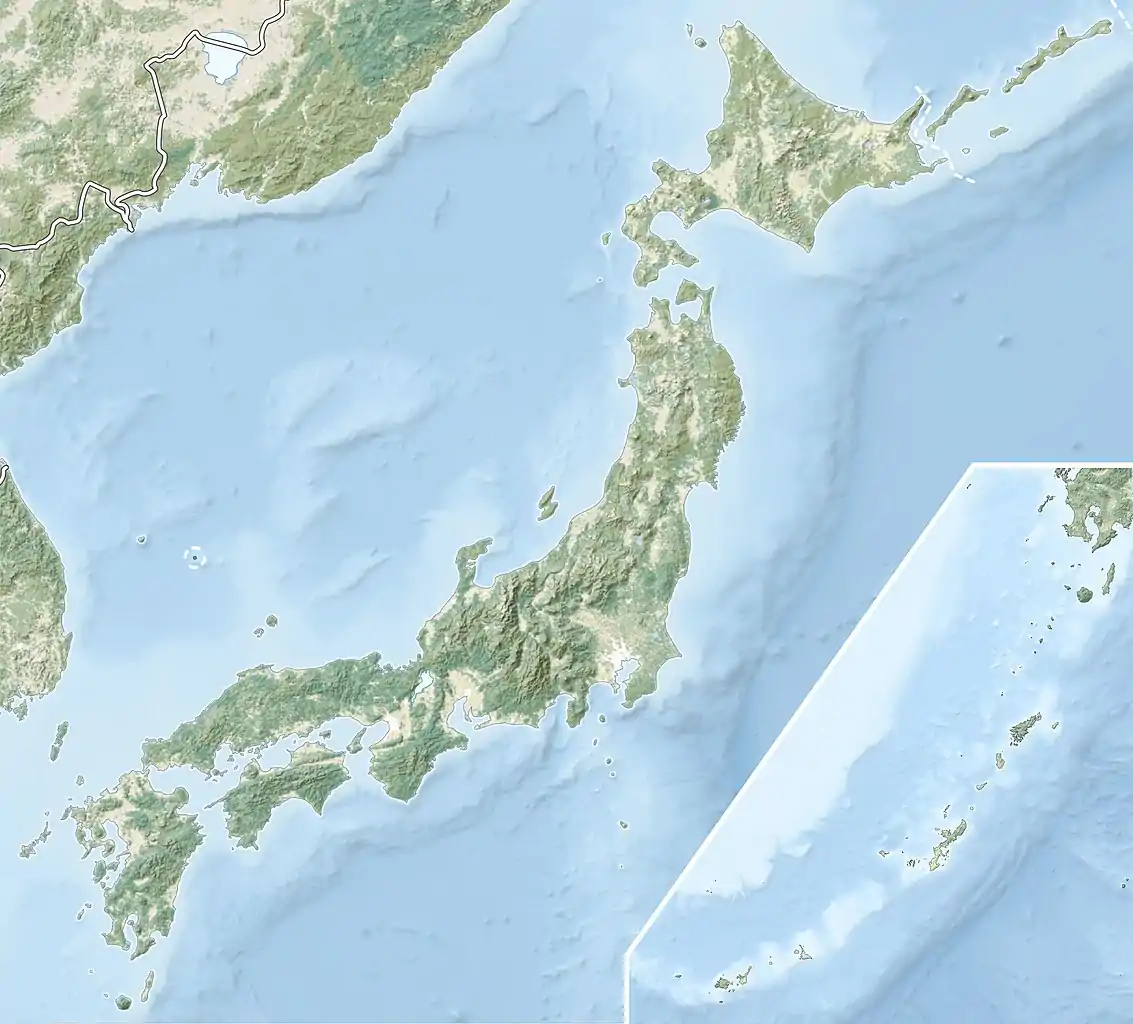| Megata | |
|---|---|
 Megata volcanic group onshore and Toga off the western shore of the peninsula | |
| Highest point | |
| Elevation | 291 m (955 ft) |
| Coordinates | 39°57′20″N 139°44′19″E / 39.955681°N 139.7386°E |
| Geography | |
 Megata Honshu, Japan | |
| Geology | |
| Mountain type | Maar |
| Last eruption | Pleistocene[1] |
Megata is a volcanic group on the Oga Peninsula in northwestern Honshu, Japan. It consists of three three basaltic-to-dacitic maars at the edge of the peninsula. These maars measuring between 300 m (980 ft) and 600 m (2,000 ft) across are filled with water, forming freshwater lakes. Ichinomegata is the widest and oldest of the three. These features date to around the Pleistocene although pottery discovered between layers of tephra has been dated to 4,000 years before present. An older and larger maar is located offshore on the western coast of the peninsula, known as Toga (Togowan), it formed 450,000 years ago. The western wall of Toga maar is breached, forming a bay.[1]
Ichinomegata maar has a depth of 44.6 m (146 ft). The depth of Ninomegata is 11.8 m (39 ft).[2]
References
- 1 2 "Megata". Global Volcanism Program. Smithsonian Institution.
- ↑ "Oga-megata Maars". Oga Peninsula - Ogata Geopark Promotion Council. Retrieved 19 November 2023.